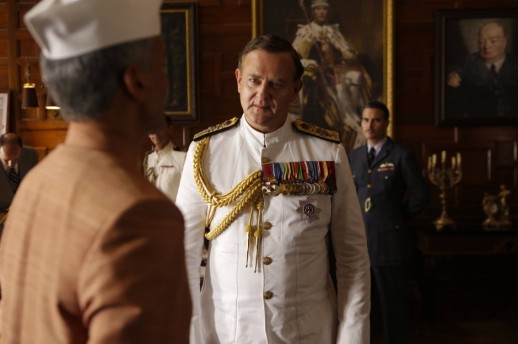Interview with Joginder Tuteja for Movie Talkies
Partition: 1947 has released and served as an eye opener for many who were not quite familiar with the circumstances in which India and Pakistan were divided as well as the role that Lord Mountbatten actually played 70 years back. The film was meant for the niche segment and the performances have met with good all around appreciation. We get into an exclusive email interview with Hugh Bonneville, who plays the central protagonist in the film – Lord Mountbatten.
The film’s timing couldn’t have been more perfect, releasing in India just 3 days after India celebrates its 70th Independence Day anniversary, what do you think the film’s message is and what is the relevance to today’s audience?
It’s a sober account of political decisions that were made in a very short space of time that affected the destiny of millions, the repercussions of which are still being felt today. It’s also an exploration of what can happen when a society divides, when neighbour turns on neighbour and intolerance triumphs. Yes, I think that’s kind of relevant in the world today, don’t you?
The film needed a mix of talent from the West as well as the East. How was your experience filming in India and with the British and Indian cast?
I hadn’t visited India since I was a teenager with a backpack and throughout my adult life I had longed to return. So travelling once again through Rajasthan and filming in Jodhpur was a huge pleasure for me. The vibrancy of Indian film crews is legendary and the cast, both local and from overseas, didn’t disappoint. Perhaps the greatest skill I learned from Huma et al when filming in the heat was how to sit very, very still. I can now do a passable impression of a lizard in the midday sun. Minimal sweat.
How much did you know about the history before the shoot began? Were there any details about Lord Mountbatten you discovered which surprised you?
For my generation the handing back of India, which marked the end of the British Empire, was part of every schoolchild’s general education and Lord Mountbatten was a visible public figure throughout my childhood. However, I didn’t know the details of Partition, how concertinaed the whole process became; the race to the exit. Nor did I know the details of Mountbatten’s appointment. He was a naval man, not a diplomat, and initially saw the challenge as nigh-on impossible.
“What if I fail?” he asked the King, who was putting pressure on him to accept the post.
“Ah! But what if you succeed?”
Mountbatten, a peacock of a man, took the bait.
When I met Lady Pamela, his daughter, she told me how when lost in thought at dinner he would idly roll pellets of bread and flick them across the table. I love learning those sorts of details.
The film also features the part of Mahatma Gandhi quite prominently. How much familiarity did you have with the Father of the Nation?
My knowledge of Gandhi was shaped by my schoolboy history lessons but was enriched when I travelled across India in the early ‘eighties. Returning to India more recently simply reinforced the iconic image of him as the Father of the Nation, now 70 years on.
The film has been screened at festivals and been reviewed by many. How has the response been so far?
Some people I’ve spoken to have found it a revelation in terms of it being a sequence of events in relatively recent history about which they knew little of the detail. Others have been deeply moved by the poignancy of the romance at the heart of the film and by the sheer scale of the refugee crisis which resulted from Partition and how its effects are still felt to this day.
How do you look at the months gone by since the making of the film, now that the film has released in India?
We all felt it was an important story to tell and be reminded of. It was deeply personal to Gurinder herself as writer/director and affecting for almost everyone on the crew. For it to be released during this significant anniversary week gives it extra potency and I hope audiences will reflect on its themes of holding on to tolerance and hope under dark skies.









